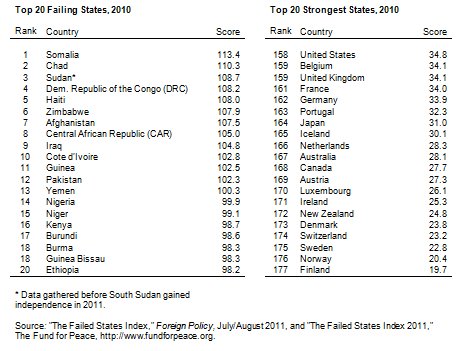In these circumstances, the decline of traditional party politics and the substitution of political leaders with technocrats adds an extremely worrying element to this from the point of view of democracy. The new Greek prime minister, as well as the names that have been floated for the future prime minister of Italy, Giuliano Amato or Mario Monti, economists with distinguished careers in central banks or European institutions, are quintessential technocrats. The refusal of politicians to sacrifice control of either their past or future decisions to the people by way of early elections or referendums, highlights the fact that they are bowing down before the markets; that they don’t trust their own ability to resolve the crisis and, above all, that they suspect their legitimacy has worn out. And so instead of assuming their responsibilities, they step to one side and call in specialists who – supposedly – lack ideological bias and who – also supposedly – know the answers that will bring the country up out of the crisis. More
Sustainability equates to a sustainable global society founded on respect for nature, universal human rights, economic justice, and a culture of peace.
Wednesday, November 23, 2011
Democracy put to the test
Tuesday, November 22, 2011
Is democracy failing?
In Italy, Mario Monti, the country's unelected new prime minister and a former international adviser to Goldman Sachs, stands in the Giustiniani Palace as head of a cabinet of similarly unelected technocrats. Imposed in place of the corrupt, useless and seedy Silvio Berlusconi to satisfy the "markets", Monti promises what we are told the markets want, and that is "sacrifices".
In Greece, both left and right of the country unite against their own technocrat, the former head of Greece's Central Bank, Lucas Papademos, brought in, too, at the behest of the markets. And in Berlin on Friday, David Cameron, the leader of the Conservative party, which could not manage to secure a mandate to govern the UK on its own, sits down with a German chancellor, Angela Merkel, whose countrymen do not trust her to handle the eurozone crisis.
If the picture of our leaders in the midst of a worldwide crisis is not a terribly inspiring one – politicians with clay feet or in hock to business interest, unelected bureaucrats and politicians lacking support – it is because western democracy itself, by and large, is not looking very pretty either. All of which leads to a question, one that has more commonly been posed by those on the farther reaches of the left, but is now infiltrating the mainstream debate: has the intimate partnership between democracy and neoliberalism, the prominent dogma of our age and one which has shaped most of our politicians, has been toxic to democracy itself? More
Sunday, November 20, 2011
The Iraq liars target Iran
The same people who lied about Iraq having weapons of mass destruction to start a war are pushing for war on Iran.
Over the past several weeks, neoconservative hawks were gleefully predicting that the International Atomic Energy Agency's new report on Iran's nuclear program would provide the spark needed to ignite and justify a US or Israeli attack.
This does not mean that the Iran nuclear threat has passed, only that the IAEA did not demonstrate that it has intensified. Yes, Iran is taking steps that indicate clear interest in developing nuclear weapons. But neither the IAEA nor anyone else knows if the Iranian regime intends to develop weapons, how long it will take to develop them or what its nuclear posture would be if it had the bomb. For 30 years, various experts have predicted that Iran would have nuclear weapons in a year, five years, or whenever - with the date always receding into the horizon.
The IAEA report doesn't offer much clarification. As a senior US government official said, in a conference call with reporters: "The IAEA does not assert that Iran has resumed a full scale nuclear weapons program nor does it have a program about how advanced the programs really are."
Of course, the usual suspects claim to know, just as they claimed to know that Saddam Hussein had weapons of mass destruction that would someday produce Condoleezza Rice's infamous "mushroom cloud" over Washington. And those same suspects agree about what needs to be done to deter Iran from developing nuclear weapons. As with Iraq, the answer is preventative war. Sooner rather than later. More
Saturday, November 19, 2011
Occupy the Agenda
The Occupy protests might have died in infancy if a senior police official had not pepper-sprayed young women on video. Harsh police measures in other cities, including a clash in Oakland that put a veteran in intensive care and the pepper-spraying of an 84-year-old woman in Seattle, built popular support.
Just in the last few days, Bloomberg — who in other respects has been an excellent mayor — rescued the movement from one of its biggest conundrums. It was stuck in a squalid encampment in Manhattan’s Zuccotti Park: antagonizing local residents, scaring off would-be supporters, and facing months of debilitating snow and rain. Then the mayor helped save the demonstrators by clearing them out, thus solving their real estate problem and re-establishing their narrative of billionaires bullying the disenfranchised. Thanks to the mayor, the protests grew bigger than ever.I watched in downtown Manhattan last week as the police moved in to drag off protesters — and several credentialed journalists — and the action seemed wildly over the top. Sure, the mayor had legitimate concerns about sanitation and safety, but have you looked around New York City? Many locations aren’t so clean and safe, but there usually aren’t hundreds of officers in riot gear showing up in the middle of the night to address the problem. More
Tuesday, November 15, 2011
The lies of free market democracy
The political paradigm is changing. Politicians are proving once again to be slow learners, they are resisting change rather than embracing it and they will be swept away by the winds of change. Editor
On May 15, 2011, young people occupied the squares of the cities in Spain. They called themselves Los Indignados - "the indignant". I met them in Madrid where I was attending the meeting of the scientific committee that advises the Spanish prime minister, Jose Luis Rodriguez Zapatero.
Their declaration states: "Who are we? We are the people; we have come here freely as volunteers. Why are we here? We are here because we want a new society that gives more priority to life than to economic interest."
In the US, the ongoing "Occupy movement" commonly cries: "We are the 99 per cent". This people's protest, inspired by the Arab Spring, is directed against the unequal distribution of wealth; the "99 per cent" here refers to "the difference in wealth between the top one per cent and all the remaining citizens".
The fact that they were supported by actions around the world when they were to be evicted from Wall Street on October 14 shows that, everywhere, people are fed up with the current system. They are fed up with the power of corporations. They are fed up with the destruction of democracy and peoples' rights. They refuse to give their consent to the bailouts of banks by squeezing people of their lives and livelihoods. The contest, as "the 99 per cent" describe it, is between life and economic interests, between people and corporations, between democracy and economic dictatorship.
The organising style of the people's movements worldwide is based on the deepest and the most direct democracy. This is self-organisation. This is how life and democracy work. This is what Mahatma Gandhi called swaraj.
Those from the dominant system, used to hierarchy and domination do not understand the horizontal organising and call these movements "leaderless". More
Sunday, November 13, 2011
Diversity of life and cultures under threat - Seeds
Seeds are a gift of nature, of past generations and diverse cultures. As such it is our inherent duty and responsibility to protect them and to pass them on to future generations. Seeds are the first link in the food chain, and the embodiment of biological and cultural diversity, and the repository of life’s future evolution.
Since the onset of the Neolithic Revolution some 10.000 years ago, farmers and communities have worked to improve yield, taste, nutritional and other qualities of seeds. They have expanded and passed on knowledge about health impacts and healing properties of plants as well as about the peculiar growing habits of plants and interaction with other plants and animals, soil and water. Rare initial events of hybridisation have boosted larger scale cultivationof certain crops in their Centres of Origin (such as wheat in Mesopotamia, rice in Indochina and India, maize and potato in Central America), which have since spread around the globe.
Manifesto on the Future of Seeds
The free exchange of seed among farmers has been the basis to maintaining biodiversity as well as food security.
This exchange is based on cooperation and reciprocity, where farmers generally exchange equal quantities of seed. This freedom goes beyond the mere exchange of seed: it also involves the sharing and exchange of ideas and knowledge, of culture and heritage. More
Friday, November 11, 2011
Time to occupy the Democratic Party
The Occupy Wall Street movement is less than two months old, and its future trajectory is impossible to predict. But with the expansive strategy of last week's general strike in Oakland, which brought tens of thousands of people into the streets, it's beginning to look increasingly possible that it could be the emergence of a long-time force in US politics
The initial numbers are quite promising. While Congress' approval rating has registered as low as nine per cent in recent polls, Occupy Wall Street enjoyed landslide majority support of 67 per cent of New York City residents in a mid-October poll. Just before that, a Time Poll found that 54 per cent of Americans had a favourable view of OWS, vs 23 per cent unfavourable. Even more telling, Time went on to ask about "some of the issues the protestors have raised", and elicited even higher levels of agreement with the following statement: "Wall Street and its lobbyists have too much influence in Washington": 86/11 per cent agree/disagree. "The gap between rich and poor in the United States has grown too large": 79/7. "Executives of financial institutions responsible for the financial meltdown in 2008 should be prosecuted": 71/23. "The rich should pay more taxes": 68/28.
Meanwhile, also echoing the Occupy Wall Street message, a nearly simultaneous Washington Post/Bloomberg News Poll found the public overwhelmingly opposed to the Washington bipartisan consensus on slashing the welfare state. Respondents opposed "Reducing Medicare benefits" by 82/14 (77/18 among Republicans) and opposed "Reducing Social Security benefits" by 83/13 (79/16 among Republicans). Other polls have yielded similar results. When Occupy Wall Street says "we are the 99 per cent", the polling says they are right.
Yet, it's a long way from being a fledgling movement in sync with the public to building long-term influence and staying power. In the short run, the Occupy movement faces significant obstacles, not the least of which is big city Democratic mayors whose decisions have resulted in mass arrests, all too often involving police violence. Oakland is the obvious high-profile example, with an out-of-control police department that's been under federal court supervision since 2003, with little to show for it. The 2003 consent decree was not demonstration-specific, but covered a widespread pattern of police misconduct in the use of force. MoreThe Occupy Wall Street and other similar movements are asking for a sustainable society. They may not be stating this as one of their demands, however, if one analyses the motivations of these movements sustainability is inherent in their demands. The Occupy Wall Street movement will not go away, it may die down for some time but it will return. Cities, States and Governments must realize this point and start engaging with these movements. One only has to look at the Middle East to see change in action, the people have realized that the ultimate power rests with them. Therefore, "Embrace Change as an Opportunity or Change Will make you Irrelevant". Editor
Thursday, November 10, 2011
There's Nothing Idealistic About the One-State Solution
In his most recent essay, Neumann suggests that his previous reluctance to be more forthright was motivated by “politeness”. Well, I for one wish the professor had been franker from the outset. It might have saved us a lot of time and effort.
Even though I have identified myself as a supporter of the one-state solution, I find much to agree with in what Neumann writes on this occasion. Like him, I do not believe that a particular solution, or resolution, will occur simply because the Palestinians or their wellwishers make a good moral case for it. Success for the Palestinians will come when a wide array of regional developments force Israel to conclude that its current behaviour is untenable.
There are plenty of signs that just such a power shift is starting to take place in the Middle East: Iran’s possible development of a nuclear warhead; an awakening of democratic forces in Egypt and elsewhere; the fraying of the long and vital military alliance between Israel and Turkey; the exasperation of Saudi Arabia at Israel’s intransigence; the growing military sophistication of Hizbullah; and the complete discrediting of the US role in the region.
Neumann is wrong to assume that one has to be an idealist – believing in the political equivalent of fairies – to conclude that a one-state solution is on the cards. It does not have to be simply a case of wishful thinking. Rather, I will argue, it is likely to prove a realistic description of the turn of events over the next decade or more.
While Neumann and I agree on the causes of an Israeli change of direction, his and my analyses diverge sharply on what will follow from Israel’s realisation that its occupation is too costly to maintain.
Neumann proposes that, once cornered by regional forces it can no longer intimidate or bully, Israel will have to concede what he terms the “real” two-state solution. More
Tuesday, November 8, 2011
Demographics Loom Large in State Failure
After a half-century of forming new states from former colonies and from the breakup of the Soviet Union, the international community is today faced with the opposite situation: the disintegration of states. Failing states are now a prominent feature of the international political landscape.
The most systematic ongoing effort to analyze countries’ vulnerability to failure is one undertaken by the Fund for Peace and published in each July/August issue of Foreign Policy. The research team analyzes 177 countries and ranks them according to “their vulnerability to violent internal conflict and societal deterioration,” based on 12 social, economic, and political indicators. Each indicator is scored from 0 to 10. A combined score of 120 would mean that a society is failing totally by every measure. Somalia, the country first on the list, scores 113.4. A score of 0 is the strongest score possible. Finland, number 177 on the list, is the strongest state with a score of 19.7.
Comparing the weakest states and strongest states reveals that rankings on the Failed States Index are closely linked with demographic indicators.
Women tend to have the most children where they lack access to family planning and where girls are not enrolled in school, as is the case in many of the top failing states. In Yemen, which has a fertility rate over 5 children per woman, 51 percent of married women have an unmet need for family planning—the highest rate in the world. One third of Yemen’s girls are not enrolled in primary school, among the lowest enrollment rates in the world. In contrast, the top strong states have low fertility rates, many falling below 2 children per woman. More
Sunday, November 6, 2011
90 Indigenous Organizations Say YES To Action Plan For Survival And Protection Of Life
In recent weeks, Indigenous representatives from 90 organizations in the Amazon region unanimously approved a new action plan that calls for an Amazon-wide "consolidation" for the survival of ancestral knowledge and the protection of forests, water, biodiversity and the climate.
The action plan, titled, "The Manaus Mandate: Indigenous Action for Life" is the end result of the First Regional Amazonian Summit, which took place in Manaus, the capital of the Brazilian state of Amazonas, from August 15-18, 201l.
The four-day Summit, organized by The Coordinator of Indigenous Organizations in the Amazon Basin (COICA), brought together representatives of Indigenous Peoples from all nine Amazonian countries, as well as government representatives, international organizations and members of civil society in the Amazon.
Government forces family living off grid growing own food on own land to return to societys rat race or face penalty
A family living an “off-grid” lifestyle say they face prison unless they move from their own land in Willand (Britain) and return to an existence in the benefits trap. Stig and Dinah Mason bought Muxbeare Orchard after a sudden windfall allowed them to quit their impoverished lives on a Hertfordshire council estate two years ago.
The Masons have transformed what they described as a derelict four-acre plot into a haven of self-sufficiency boasting a 400 sq m allotment, a polytunnel and greenhouses to grow fruit and vegetables, chickens for egg production and an orchard they have regenerated by planting around 14 new apple trees of various species. The couple, who have two boys, aged eight and nine, say because they moved onto the site in order to work the land, Mid Devon District Council is turfing them off as officers do not consider them to be conserving an agricultural area.
They faced magistrates on March 31 when they were served with an injunction to leave within 28 days from June 1.
Dinah, 35, who spent a year with her husband clearing four-foot high nettles and thistles which engulfed the four-acre site, said: “How anybody can say the orchard was being conserved before is beyond my comprehension.”
Dinah works while Stig, 34, as well as making sure the children get to school on time, tends to the land on a daily basis where peas, potatoes, garlic, strawberries, raspberries and various produce have been growing since 2009. More
It seems to me that this kind of behavior by the council needs to be controlled. I envision a type of "Hippocratic Oath" covering the behavior of many entities (governments, corporations, financial institutions) that forces them for doing harm. Editor
Saturday, November 5, 2011
Hu addresses commodity prices, energy, food security in G-20 summit speech
CANNES, France, Nov. 4 (Xinhua) — Chinese President Hu Jintao on Friday delivered a speech at the G-20 summit on key issues such as the fluctuation of staple commodity prices, energy and food security and employment.
On the issue of the fluctuation of staple commodity prices, Hu noted that the G-20 needs to focus on the following three aspects:
First, seek a proper balance between the stabilization of staple commodity prices and the promotion of world economic growth.
The G-20 needs to adopt measures to expand productive capacity, stabilize supply and demand, strengthen supervision,increase the transparency of market transactions and curb speculation so as to maintain the stability of staple commodity prices at a reasonable level.
Second, achieve an equitable balance between the stability of staple commodity prices and the ensuring of global energy and food security.
The G-20 should take concerted actions in such areas as the real economy, and trade and finance, and establish an advanced promotion system for the research and development of energy and agricultural technologies, he said.
Hu said the G-20 should also build a fair, equitable and non-discriminatory international trading system so as to promote the sound, stable and orderly development of the international staple commodity market.
Third, strike a right balance between the stabilization of staple commodity prices and the promotion of international development and cooperation. The G-20 nations should promote technology transfers and financial support for the developing economies, and help them to ensure energy security and food security. More
Thursday, November 3, 2011
Europe’s overseas territories need more protection
02 November 2011 | Giant “Mountain Chicken” frogs, the 25 million bird island, and a rainforest the size of Portugal are increasingly threatened by the impacts of climate change and in need of greater protection, according to a new report published by IUCN (International Union for Conservation of Nature).
The study, Future Directions for Biodiversity Action in Europe overseas: Outcomes of the Review of the Implementation of the Convention on Biological Diversity, states that Europe’s commitment to the global biodiversity goals set by the CBD (Convention on Biological Diversity) will benefit from action in its overseas territories. In this respect, the Strategic Plan for Biodiversity 2011-2020 and its 20 Aichi Targets provide a strong framework of work not only at the global level, but also at the regional and national level.
The report calls for increased action to protect the natural heritage of the more than 30 EU territories and regions found outside the European continent. These territories, from the poles to the tropics, host the most of Europe’s biodiversity, which is globally significant and essential for the livelihoods of local people. The connection between local communities, biodiversity and the benefits provided by it, as well as the impact that climate change has must be recognized to help these regions flourish.
“It’s imperative that funding be realigned so that resources are proportionate to the significance of Europe’s overseas territories biodiversity,” says Dominique Benzaken, IUCN Europe Overseas Programme Coordinator and co-author of the publication. “There also needs to be increased local awareness of global obligations and effective participation in global, European, national and regional biodiversity policies and programmes.” More
Wednesday, November 2, 2011
Guyana's coastal population faces threat of sea level rise
MAHAICONY, Guyana (AlertNet) – Rising sea levels caused by climate change are threatening the coast of Guyana, where most of the country’s population and almost all of its economic activity are located.
Despite the presence of defensive walls, Guyana ’s coast is highly vulnerable to flooding linked to sea level rise. With the coastal population continually expanding, thousands of new homes are built on low-lying land every year.
“Here in Guyana the difficulty of planning is compounded because we are below sea level on the coast,” said Guyana ’s Minister of Housing and Water, Irfaan Ali.
“The threat of rising seas poses a difficulty, especially since a major segment of the population lives in (coastal) urban areas,” he said.
Ninety percent of this South American nation’s population of 755,000 now live within 100 km (60 miles) of the coast. More than 400,000 live in what researchers refer to as the lower elevation coastal zone, including about 240,000 residents of the capital, Georgetown .From 2006 to 2010, over 18,000 new plots of land were allocated for housing construction in Guyana, mainly on the coast, according to the government.
HOUSES ON PILINGS?
The government and other experts are now exploring ways in which Guyanese will have to adapt to climate change if they are to continue living in coastal areas. Those may include building new homes on raised pilings, at least three feet above the ground, and improving drainage systems. More












